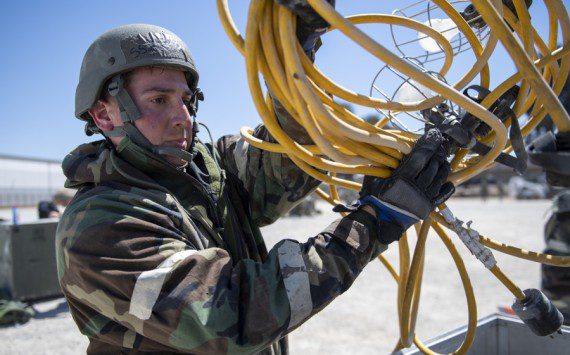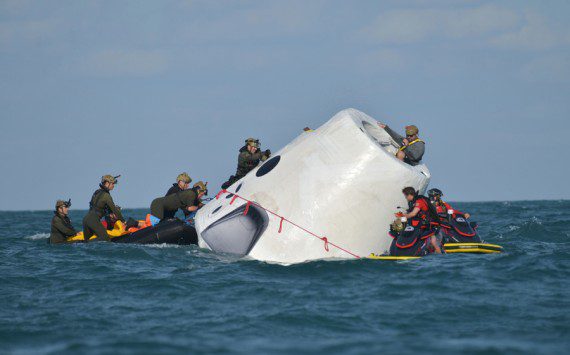Department of Veterans Affairs’ Deputy Secretary Sloan Gibson announced Feb. 26 improvements to enhance and accelerate progress at the Veterans Crisis Line, which serves as a life-saving resource for veterans who find themselves at risk of suicide.
In his third trip to the Crisis Line in a year, Gibson announced that the Crisis Line would form a stronger bond with VA’s Suicide Prevention Office and Mental Health Services.
This partnership includes VA’s National Mental Health Director for Suicide Prevention as well as several hubs of expertise, including one Center of Excellence focusing on suicide prevention research and education located at the same medical campus as the Crisis Line responders in Canandaigua, N.Y.
Gibson also announced that the Veterans Crisis Line would now be under the direction of VA’s Member Services, which has many efforts underway across the nation to restructure portions of VA that have direct contact with veterans. This brings an expertise in ensuring that staff in these vital roles have more streamlined processes, adequate training and resources at their fingertips, to better serve veterans.
These structural changes build on key hires made in the last year to lead the Crisis Line, including a director with extensive clinical social work background.
“I witnessed again today that the employees at the Veterans Crisis Line have a tremendously difficult job and they complete it with care, compassion and professionalism,” said Gibson. I want to make sure that the trained professionals at the Crisis Line — folks I consider the best in the business — are able to focus on their core mission of focusing on the veterans most in need of their help. They are life savers and we have to create the structure around them to succeed.
“Over the past year, we have put together a strong team to lead the employees at the Crisis Line. Today’s announcement of a structural change within the Veterans Health Administration and additional support from our experts in suicide prevention is another step to make sure the employees and the veterans they speak with have what they need give veterans a safe place to call when they need us most.”
As a part of the MyVA initiative, the largest restructuring in the department’s history, VA has made improvements at the Veterans Crisis Line a key priority. By the end of this year, every Veteran in crisis will have their call promptly answered by an experienced VA responder. That will mean non-core calls will be directed appropriately to other VA entities that can best address their questions or concerns.
Already, VA has committed to increase staff at the Veterans Crisis Line. It now has more than 300 employees, and is in the process of hiring 88 more staff. At the same time, they have expanded the work area for responders and are making necessary technology improvements to phone systems and equipment to better handle the increased demand at the crisis line.
“Last year, counselors at the Crisis Line dispatched emergency responders to intervene and save the lives of Veterans in crisis more than 11,000 times,” said Gibson. “That means, on average, we’re stepping in to save 30 lives per day. Nothing could be more important.”
Key Facts
* Since its launch in 2007, the Veterans Crisis Line has answered nearly 2 million calls — and nearly a quarter of those calls were answered last fiscal year — 490,000.
* The same is true for referrals to local VA Suicide Prevention Coordinators: One quarter of the 320,000 referrals made so far by crisis-line counselors were made in FY 2015.
* Crisis Line counselors dispatched emergency responders to callers in crisis over 11,000 times last year (averaging 30 per day) — and over 53,000 times since 2007.
* Since adding chat and text services, they have engaged nearly 300,000 Veterans or concerned family members through chat or text.
Veterans in crisis may contact the Veterans Crisis Line at 1-800-273-8255 and Press 1.They can also text or chat with our trained professionals online at VeteransCrisisLine.net.











